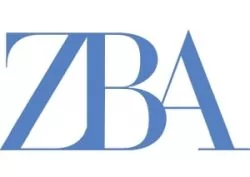INTRODUCTION:
The Supreme Court in the recent case of Project Director, National Highway Authority Of India V. M. Hakeem1 whilst analyzing the curial court's power to set aside an award under Section 34 of the Arbitration & Conciliation Act, 1996 (Arbitration Act), ruled that it could not modify or vary the impugned award.
BACKGROUND:
The Supreme Court heard a batch of appeals challenging awards made by the competent authority under the National Highways Act (Act).
Under the Act, the competent authority was authorized to determine compensation for land acquisition. The Act provided for arbitration, in the event that either party (i.e., National Highways Authority of India ("NHAI") or the landowner), was aggrieved by the amount of compensation determined by the competent authority. The Act contemplated the appointment of an arbitrator by the Central Government.
The appeals being heard by the Supreme Court were cases where the landowners were displeased with the extremely low amounts awarded to them under the Act by the competent authority.
The landowners challenged the awards before the District and Sessions Judge i.e., the court of first instance. The District and Sessions Judge whilst considering the set aside applications under Section 34 of the Arbitration & Conciliation Act, 1996 ("Arbitration Act") enhanced the compensation and modified the awards. This modification to the awards was subsequently upheld by a Division Bench of the Madras High Court, which led to appeals being filed in the Supreme Court by the NHAI.
RIVAL SUBMISSIONS
NHAI argued that a challenge to the arbitrator's award under Section 34 of the Arbitration Act, was on restricted grounds and that the court's powers did not extend to reviewing the merits of the award. The court, according to NHAI, could either set aside or remit the award to the arbitrator under Section 34(4) Act to eliminate any grounds of challenge, but could not rewrite i.e., vary or modify the award.
The landowners responded by contending that the compensation was correctly enhanced by the District Judge. They submitted that a distinction required to be drawn between consensual arbitration and an arbitrator appointed by the Central Government, who would merely be giving his approval to the compensation awarded by another government official.
SUPREME COURT REASONING
The Supreme Court agreed that an award under Section 34 of the Arbitration Act could be reviewed on extremely limited grounds and judicial "recourse" could only be for "setting aside" the award.
The Court held that its analysis of restricted powers of judicial review limited to setting aside of the award was further fortified by Section 34(4) which enabled the Court to adjourn proceedings so that the arbitral tribunal could eliminate the grounds for setting aside of the arbitral award.
The Supreme Court explained that Section 34 of the Arbitration Act was inspired by the UNCITRAL Model Law, which did not confer on the court hearing a challenge to an award, the power to modify such award. The suggestion that the court could modify the award was antithetical to the legislative policy of minimal judicial interference in arbitral awards in Section 34 of the Arbitration Act.
The Court referred to its earlier judgement in McDermott International Inc. v. Burn Standard Co. Ltd.2 ruling that the Arbitration Act provides for a minimum supervisory role of the courts, which did not extend to correcting arbitral errors. The only exception to this rule was the plenary power under Article 142 of the Constitution of India conferred exclusively on the Supreme Court, which legitimately entitled it (but no other court) to modify an award.
Section 34 of the Arbitration Act was contrasted against the provisions for challenging an award under the arbitral enactments of England, the United States, Canada, Australia, and Singapore. The Supreme Court observed that unlike Section 34 of the Arbitration Act, each of these enactments had express provisions permitting the reviewing court to vary or modify the impugned award.
The Supreme Court concluded its discussion by ruling that interpreting Section 34 to include the power to modify an award would amount to crossing the "Lakshman Rekha" i.e., crossing the line and straying into the domain of Parliament, which was impermissible.
A scrutiny of the awards revealed glaring inconsistencies in outcome. Some landowners were awarded enhanced amounts of compensation without any discernible reason. The Court accordingly refused to interfere with the judgement under appeal as the awards were passed 7-10 years ago. Upsetting the apple cart at this stage and setting aside the awards would result in the landowners being gravely prejudiced. The Supreme Court in the peculiar facts and circumstances of the case dismissed the appeals.
CONCLUSION
The judgement re-affirms the 'light touch' minimal judicial interference philosophy adopted by Indian Courts when dealing with a challenge to an arbitral award. That said, there is a compelling need for legislative changes to Section 34 of the Arbitration Act that permit a reviewing court in appropriate cases to vary or modify an award. The current binary- all or nothing approach, works considerable hardship and injustice to those awards which if appropriately modified would pass muster, but under the current dispensation would be set aside.
Footnotes
1. SLP No. 13020 of 2020 decided on 20 July 2021
2. ( 2006)11 SCC 181
The above is a generic analysis and should not be regarded as a substitute for specific advice based on the facts of a client's objectives and specific commercial agreements reached. Please do reach out to us at mail@zba.co.in for any queries.

